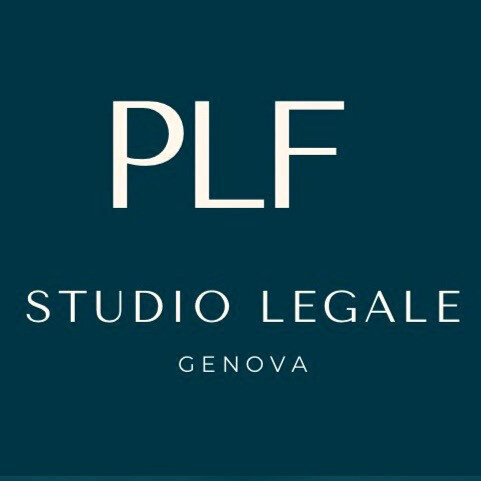Best Domestic Violence Lawyers in Genoa
Share your needs with us, get contacted by law firms.
Free. Takes 2 min.
Free Guide to Hiring a Family Lawyer
List of the best lawyers in Genoa, Italy
About Domestic Violence Law in Genoa, Italy
Domestic violence is a serious issue in Genoa, as it is throughout Italy. The law defines domestic violence as any act of physical, psychological, sexual, or economic abuse that occurs within a family or intimate relationship. Italian law aims to prevent and punish such acts, offering legal protections and support for victims. Genoa, being a major city in the Liguria region, follows national legislation but also offers local resources for people experiencing domestic violence.
Why You May Need a Lawyer
Legal advice and representation are often essential in domestic violence situations. You may need a lawyer if you are a victim seeking protection from an abuser, if you wish to file a criminal complaint, or if you need to navigate family and custody matters affected by domestic violence. Alleged offenders also require legal counsel to understand their rights and obligations. A lawyer ensures your rights are upheld throughout the legal process, can help you obtain restraining orders, and represents you in criminal or civil proceedings.
Local Laws Overview
Italian law punishes domestic violence under several criminal codes, including articles covering threat, assault, personal injury, harassment, and stalking. The 2013 "Legge sul femminicidio" (Anti-Femicide Law) strengthened legal protections, with expedited procedures for restraining orders and increased penalties for offenses committed against family or household members. In Genoa, local police (Polizia di Stato and Carabinieri) and the local prosecutor’s office (Procura della Repubblica) play significant roles in investigating and prosecuting domestic violence. Victims can seek protective measures such as immediate restraining orders and can access shelters, counseling, and medical care.
Frequently Asked Questions
What constitutes domestic violence in Genoa, Italy?
Domestic violence includes any physical, emotional, sexual, or economic abuse within a family or cohabitating relationship. This covers threats, slapping, hitting, forced isolation, stalking, financial control, and intimidation.
How do I report domestic violence in Genoa?
You should contact law enforcement (Polizia di Stato or Carabinieri) by dialing 112 (emergency number) or go to your local police station. You can also contact anti-violence centers for support with reporting.
What protection does the law offer to victims?
Victims can receive urgent protection such as restraining orders (ordinanze di protezione), mandatory removal of the offender from the home, and safe accommodation in shelters.
Can a victim remain anonymous when reporting?
Victims can remain anonymous when first seeking help or advice, especially when contacting support centers or hotlines, but a formal police report will require identification.
Are legal services free for victims?
Victims with limited financial resources may be entitled to “gratuito patrocinio” (free legal aid) in criminal and civil proceedings related to domestic violence.
What happens after reporting domestic violence?
The police will investigate the report, possibly involve social services, and the prosecutor may request precautionary measures, including restraining orders, to protect the victim.
Can domestic violence affect child custody?
Yes. Judges consider domestic violence in custody decisions. Violence can be grounds to limit or remove custody or visitation rights of the offending parent.
Is psychological abuse recognized by Italian law?
Yes. Italian law acknowledges not just physical but also psychological and economic abuse. These can be grounds for criminal charges and protective actions.
Where can children who witness violence get help?
Children who witness violence are considered victims by law and can access protection, psychological support, and removal from environments deemed unsafe.
How fast can a restraining order be issued?
In urgent situations, restraining orders can be obtained within hours or days. Courts prioritize cases involving immediate risk to the victim’s safety.
Additional Resources
For those affected by domestic violence in Genoa, several local and national organizations provide support, advice, and shelter:
- Anti-Violence Center (Centro Antiviolenza): Offers psychological, legal, and shelter services specifically to women who have experienced violence.
- Polizia di Stato and Carabinieri: Local police forces who can assist with reporting and protection.
- Social Services (Servizi Sociali): Municipal offices offering assistance and connecting individuals to shelters and legal support.
- “Telefono Rosa”: A national helpline for women subjected to violence.
- Legal Aid Offices (Ufficio di Patrocinio a Spese dello Stato): For information on obtaining free legal representation.
- Hospitals and Emergency Services: For immediate medical care and documentation of injuries.
Next Steps
If you need legal assistance with a domestic violence issue in Genoa, consider the following steps:
- If in immediate danger, contact police by dialing 112 or go to the nearest police station or hospital.
- Reach out to an anti-violence center for confidential support and guidance.
- Collect any evidence of abuse, such as messages, medical records, or witness statements, which will be vital for legal proceedings.
- Consult a lawyer experienced in domestic violence cases for advice on your rights and options. If you meet financial criteria, apply for legal aid.
- Follow through with any recommended protective measures, such as restraining orders or temporary shelter.
- Seek ongoing support for yourself and any affected family members from social services or counseling professionals.
Taking these steps empowers you to access your rights, seek protection, and begin the legal process towards safety and justice.
Lawzana helps you find the best lawyers and law firms in Genoa through a curated and pre-screened list of qualified legal professionals. Our platform offers rankings and detailed profiles of attorneys and law firms, allowing you to compare based on practice areas, including Domestic Violence, experience, and client feedback.
Each profile includes a description of the firm's areas of practice, client reviews, team members and partners, year of establishment, spoken languages, office locations, contact information, social media presence, and any published articles or resources. Most firms on our platform speak English and are experienced in both local and international legal matters.
Get a quote from top-rated law firms in Genoa, Italy — quickly, securely, and without unnecessary hassle.
Disclaimer:
The information provided on this page is for general informational purposes only and does not constitute legal advice. While we strive to ensure the accuracy and relevance of the content, legal information may change over time, and interpretations of the law can vary. You should always consult with a qualified legal professional for advice specific to your situation.
We disclaim all liability for actions taken or not taken based on the content of this page. If you believe any information is incorrect or outdated, please contact us, and we will review and update it where appropriate.










